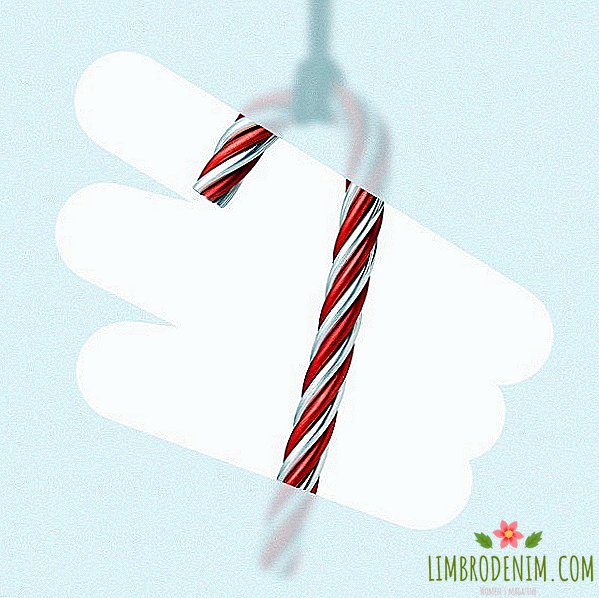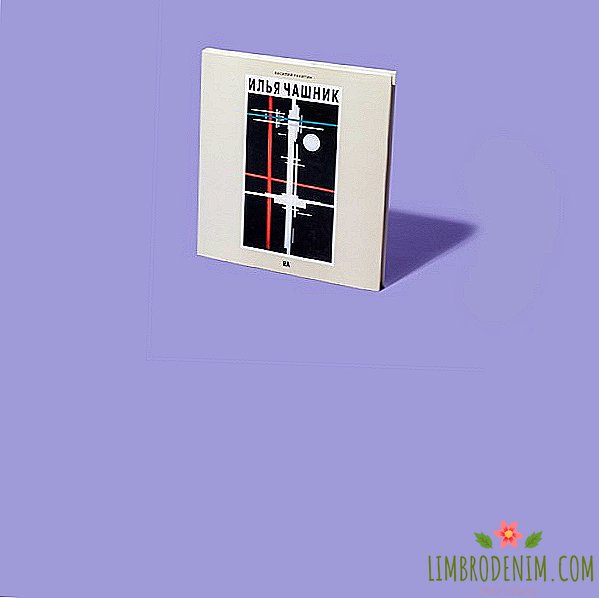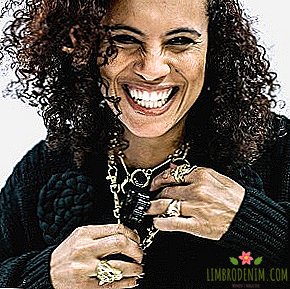Journalist Angelo Flaccavento: "The gloss has become similar to catalogs"
Founder of Mercedes-Benz Kiev Fashion Days, Style.com ambassador and Nowfashion.com video director Daria Shapovalova met with Angelo Flakkavento - Italian journalist, author of Vogue, GQ, L'Officiel and Fantastic Man - and talked with him about what women's publications should learn from men, why not to lay out a lot of money for the brand and how to relate to fashion easily.

Daria Shapovalova
contributor to Style.com and Nowfashion.com

Angelo flaccavento
journalist
 You once described the case, how you lost your suitcase with all the clothes just before the fashion week in Paris and stayed with a couple of things. At first you panicked, but then suddenly you realized that now you don’t have to think long and hard what to wear. Don't you think that all of us would be much happier if we didn’t have this abundance of clothes around?
You once described the case, how you lost your suitcase with all the clothes just before the fashion week in Paris and stayed with a couple of things. At first you panicked, but then suddenly you realized that now you don’t have to think long and hard what to wear. Don't you think that all of us would be much happier if we didn’t have this abundance of clothes around?
I'm not sure that we would be happier, but we would definitely think more creatively. Sometimes it's quite interesting to be in situations where you have no choice. That is why I like the British a lot - in critical situations they become extremely resourceful. Punk became a real aesthetic revolution, and, on reflection, it arose from nothing: women's clothing was sometimes a set of stapled garbage bags. I like it when people, because of a lack of something, come up with something new. When you have everything, it is very easy to splinter.
 You write for both independent and mainstream publications. What is the difference in approaches?
You write for both independent and mainstream publications. What is the difference in approaches?
Readers of the independent publication are well aware of what is at stake when I write about Junya Watanabe or Comme des Garçons. I seem to be talking to someone I have known for a long time. If I write about these brands for a financial publication, I need to explain to the reader why they are important for the entire fashionable context and what their role is. In the case of mainstream editions, I need to be simpler in expressing my own thoughts, but at the same time preserving my own writing style. In independent journals, my articles are like literary works, in which the main thing is style. But I prefer to write for readers who do not share my taste or do not understand what I am writing about. This is an interesting challenge.
 The main task of women's magazines is to sell. What is the task of independent publications?
The main task of women's magazines is to sell. What is the task of independent publications?
Inspire, this is much more important than selling. In mainstream magazines I don’t like the fact that they have become similar to directories. Of course, they should cause interest in clothes and a desire to buy it, but first of all the magazine must serve as a source of inspiration. Such magazines-catalogs do not delight me, because they do not make me think; they only show the product, what is relevant at the moment.
I prefer to write for those who do not share my taste and do not understand what I am writing about.
 In recent years, more and more intellectual magazines have begun to appear - The Gentlewoman, Industrie Magazine, System. Is the industry really lacking such publications or are they all aimed at the same audience? Do such magazines have chances to become massive once?
In recent years, more and more intellectual magazines have begun to appear - The Gentlewoman, Industrie Magazine, System. Is the industry really lacking such publications or are they all aimed at the same audience? Do such magazines have chances to become massive once?
I think The Gentlewoman is absolutely brilliant. The quality of the interview deserves the highest praise; moreover, interviews are taken from extremely interesting personalities with whom I would not refuse to meet. Yes, while the magazine is not searched on the shelves, but it might be interesting for a rather wide circle of readers. Although The Gentlewoman is made for women, any man can read it with pleasure. He is not about celebrities, but about smart people who are trying to convey certain ideas. Not sure that someday The Gentlewoman will be massive, but it would be great.
 In your, The Gentlewoman - the most worth a magazine of all new ones?
In your, The Gentlewoman - the most worth a magazine of all new ones?
In my opinion, yes. He talks not only about fashion, his circle is much wider. Is an ordinary person interested in an interview with Nicolas Gheskier? If we are talking about Industrie Magazine, then hardly anyone outside the fashion industry will be interested in reading it. And The Gentlewoman is a fashionable publication with an intellectual bias, designed not only for people from the fashion industry.
 What women's magazines do men most often read?
What women's magazines do men most often read?
Men do not like if they are caught reading women's magazines, we are ashamed of it. But after all, Vogue is the bible of the whole industry, how not to read it?
 Would women's magazines be more interesting to men if they had more self-irony?
Would women's magazines be more interesting to men if they had more self-irony?
Yes. Women's publications often dictate too much - it is incredibly boring. But, unfortunately, the irony is less and less in the men's publications.
 But there are a lot of it on blogs - take, for example, The ManRepeller. Maybe that's why they are so popular?
But there are a lot of it on blogs - take, for example, The ManRepeller. Maybe that's why they are so popular?
I completely agree. In addition, blogs are a completely different platform for expressing your own thoughts. They react very quickly to what is happening, so the ironic look is important. A month later, this irony will no longer be so relevant.

 But over the past few years, the role of blogs has changed a lot. everyone is already rather tired of looking at the bows.
But over the past few years, the role of blogs has changed a lot. everyone is already rather tired of looking at the bows.
At the very beginning, blogs expressed an alternative opinion, but then they gave up strongly - it is worth giving the blogger a bag, as he writes about it. Another genre is style blogs in which they lay out bows, but it is easy to get enough of these. Before you create a blog, ask yourself: "Do I have something to say to the world? Should I litter the space with unnecessary photos?" I think people do not think about such things. I do not want to seem rude, but sometimes I read completely ridiculous articles on the Internet. You just need to stop and think for ten seconds if you should start writing.
 At some point, the traditional press and blogs just swapped. Blogs depend on advertising even more than the usual media.
At some point, the traditional press and blogs just swapped. Blogs depend on advertising even more than the usual media.
Exactly. I do not like the fact that blogs from the very beginning brought up a wrong understanding of the style. Style is not a collection of designer things, but an expression of your views with the help of clothes. I am absolutely sure that dressing up specifically to be photographed on the street is the most unstable thing that can be. The idea of style is too polluted today. It was the blogs that drew media attention to street style, but in the end they themselves blurred its true meaning.
 Would you say that today the industry is oversaturated with fake style icons?
Would you say that today the industry is oversaturated with fake style icons?
Of course! Most are not real. I think a moment will come when everyone will get enough of them and no one will care about them anymore. But for the next couple of years everything will be as it is now. I absolutely agree with the position of Suzy Menkes in her Circus of Fashion article. The word "circus" is a little offensive for us - those who work in fashion. We after all go to shows not to brag of the appearance, and on working need. When I was going to Milan Fashion Week last season, I received a letter from bloggers who organized some street style competition: “Hello, Angelo! Could you send us a preview of a few of your images?” I replied that I was going to Milan to work, and not to go on the podium.
 Nevertheless, you became recognizable thanks to street-style blogs.
Nevertheless, you became recognizable thanks to street-style blogs.
Yes, but it happened, because as soon as I put something on, they pay attention to me. But there are many characters obsessed with posing for photographers.
What we see on the podium are prototypes that are sewn by hand in an atelier; the rest of the clothes are sewn quickly and poorly
 Maybe the problem of fashion is that it has become too commercial?
Maybe the problem of fashion is that it has become too commercial?
I completely agree - the desire to be sold clogs the fashion: an incredibly large amount of clothing is sewn, unthinkable money is earned. Sometimes clothes of different brands can be distinguished only by labels. The advertising campaigns 20 years ago contained a meaning; now everything is flat. Because of the desire to sell as much as possible things are produced very quickly and cheaply - only here it does not affect prices. Sometimes I go to the store, look at the prices and understand that I am not going to buy anything. What we see on the podium are prototypes that are sewn by hand in an atelier; the rest of the clothes are sewn quickly and poorly. Another problem of fashion is that everything is paraded and instantly turns into a cliche. This requires a society: it wants to see your favorite thing many times. And the more we see it, the less interesting it becomes.
 What then is the role of luxury in our time?
What then is the role of luxury in our time?
I would like luxury to be personal in nature, not something that is imposed on us. Otherwise, it will lose its original value.
 As a result, we return to the roots - to the studio and manual work.
As a result, we return to the roots - to the studio and manual work.
Hope this really happens!
 In your interviews you repeatedly mention the statement of the year "Art attracts us only because it reveals the most secret things in us. " Can this idea be applied to fashion?
In your interviews you repeatedly mention the statement of the year "Art attracts us only because it reveals the most secret things in us. " Can this idea be applied to fashion?
Yes. Fashion reveals secret desires. I was always wondering why people choose one or other clothes; everything makes sense, even if you decide to wear a simple white shirt or tank top. People are used to treating fashion as something superficial, but in fact it is much deeper than it seems.
Photography: Sergei Sviatchenko by Senko / Wikimedia Commons





